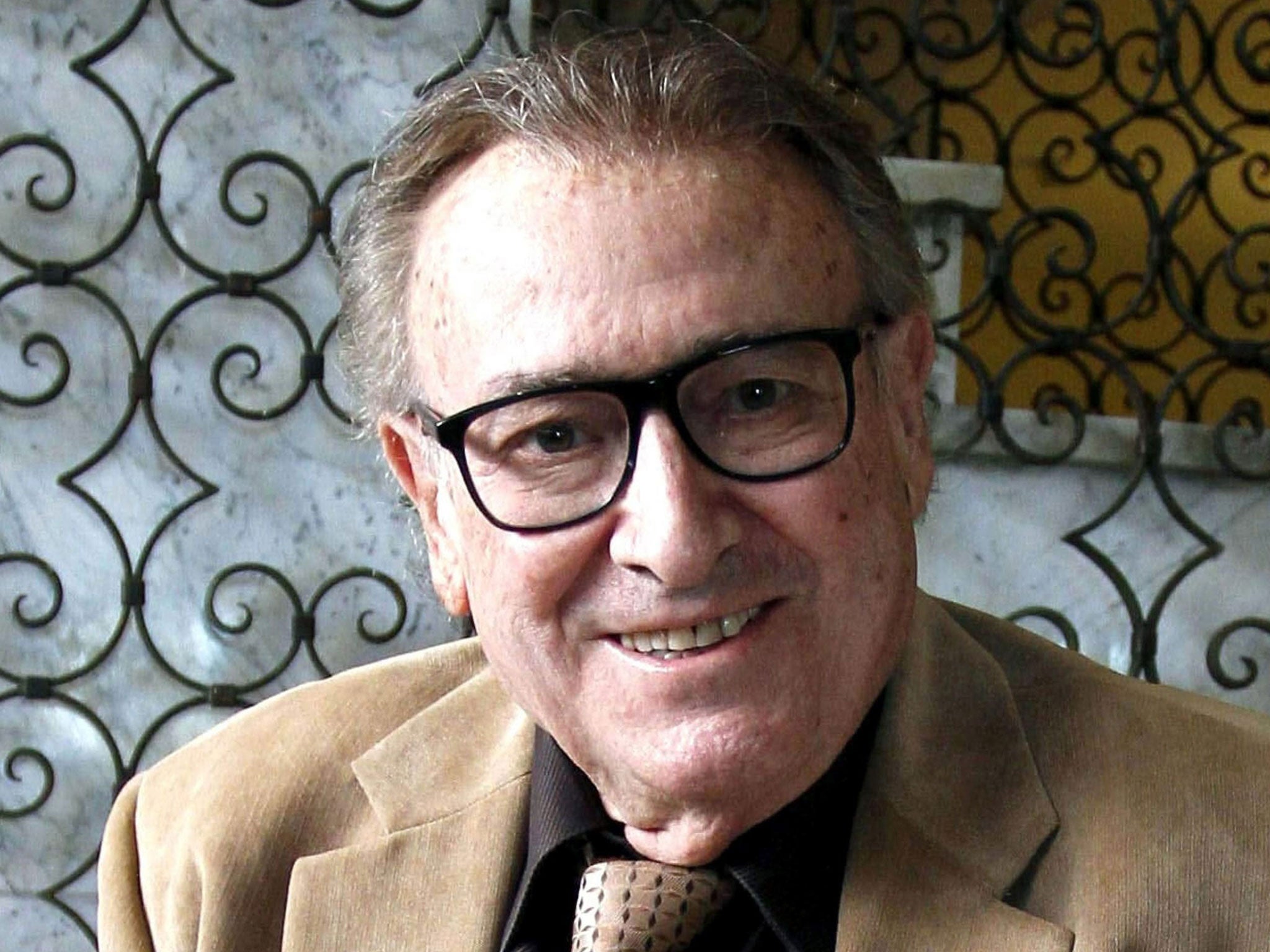Manolo Escobar: Singer hailed as ‘the Elvis Presley of the rumba’ who became best known for the worldwide hit ‘Y Viva España’

“Manolo Escobar was our Elvis Presley of the rumba” (or Spanish folk dancing) – a columnist wrote in Spain’s ABC newspaper. And although Escobar was best-known internationally for his “Y Viva España”, he was also Spain’s top male singer of the 1960s and early 1970s, and record sales of his mixture of traditional music and more modern styles sold by the millions.
Born into a family of 10 children in 1932 in rural Almeria, the most south-easterly province of Andalusia, and one of Spain’s poorest, Escobar began singing professionally at the age of eight and then took the well-trodden emigration trail for Barcelona at 14, after the family business, a hotel, went bankrupt.
First forming a band playing traditional songs with his brothers Juan Gabriel, Baldomero and Salvador, he combined performing with numerous jobs in post offices, factories and building sites. Then in 1960, when his version of the song “El Porompompero” became a smash hit, his solo career finally took off.
Escobar’s music is hard to define – neither straight Spanish folk music, nor flamenco or pop, but rather a catchy, unchallenging fusion of all three. It might have been bland and predictable, and the lyrics were undoubtedly cheesy – “even my dog can’t stop walking from my house to yours and from your house to mine” he crooned on one of his biggest 1960s hits, “Ojos verdes” [Green Eyes] – but there was no arguing with its enormous popularity. And with no political content to offend the ruling Franco regime, (although the authorities would surely have approved of his singing, “I don’t like you going to a bullfight wearing a mini-skirt” in another of his multi-million selling hits, “La Minifalda”), of his 78 albums, 24 went gold.
Escobar did not wish to record the song for which he became best known, “Y Viva España” – written originally by the Belgians, Leo Rozenstraten and Leo Koerts in 1971 – because of its lyrics’ tacky patriotism. But he ceded to pressure from his record label and the subsequent single sold six million copies.
It spawned numerous cover versions, one of the most memorable by the Swedish folk singer Sylvia Vrethammar in 1974. Dressed in a fetching Cordoba-style hat and camping it up to painfully corny levels, Vrethammar recounted how she was “On her way to sunny Spain ... on the Costa Brava plane”, and how a bullfighter made her knees tremble when he “rattled his maracas close to me”. As a three-minute Spanish cliche fest went Vrethammar’s song has arguably never met its English-speaking match, and after it reach No 4 in the UK charts that year, and staying in the hit parade for six months, one could say that no self-respecting British hen-party to Spain is complete without at least one bawled-out chorus.
In Spain, meanwhile, “E Viva España” – in its original, maraca-free version – became something of an unofficial national anthem, performed by Escobar at everything from the national football team’s successful 2008 European Championship and 2010 World Cup campaigns, to countless New Year’s Eve television galas. His music became so popular that Escobar grew, he once said, “fed up to the back teeth with singing the same songs 5,000 times.” But when he refused to perform any of his hits at a performance in Malaga, the concert goers were so outraged that he promptly went back, as he put it, “to being myself,” cranking out the favourites night after night and year after year.
Escobar’s performances in 20 or so films were less impressive, mostly consisting of appearances in unimaginative rural dramas or low-budget erotic comedies – a format known as destape – for which Spaniards developed an insatiable appetite in the mid-1970s. Arguably the most memorable image of any of his films – given that it would never have got past Franco’s censors and was thus something of a social breakthrough – was in 1976, when he became the first Spanish actor to be filmed smoking drugs, a joint, offered to him by a hippy on the fun-loving Costa del Sol in La mujer es un buen negocio [Women are good business].
Escobar gave up acting in 1981, and with his popularity waning slightly he dedicated more and more time to collecting art. By the time he died had amassed around 2,000 paintings by leading Spanish artists. But he continued recording and giving concerts, too, until 2012, when encroaching illness forced him to take a prolonged break.
A comeback tour was planned for January next year, with another album in the offing, but after his cancer worsened, he died at home in Benidorm. As the Spanish Prime Minister Mariano Rajoy said, “we have lost, after half a century, an indispensable reference point for traditional Spanish music.”
Manolo Escobar: singer and actor: born El Ejido, Spain 19 October 1931; married 1958 Anita Marx (one daughter); died Benidorm 24 October 2013.
Subscribe to Independent Premium to bookmark this article
Want to bookmark your favourite articles and stories to read or reference later? Start your Independent Premium subscription today.

Join our commenting forum
Join thought-provoking conversations, follow other Independent readers and see their replies